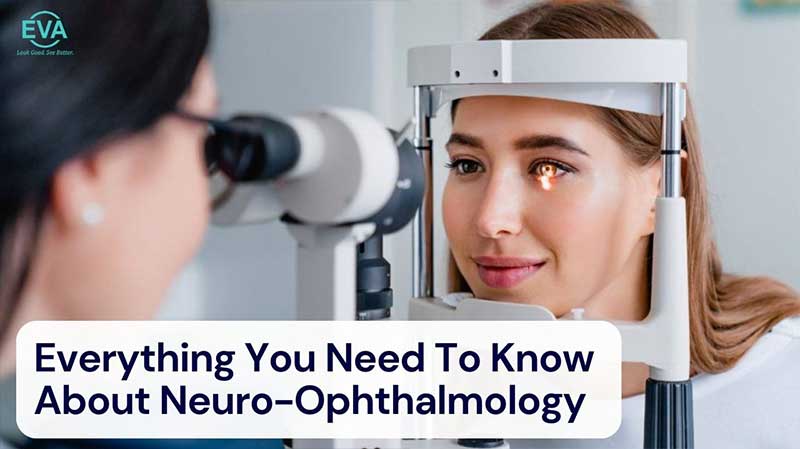Everything You Need To Know About Neuro-Ophthalmology

In the realm of medical specialties, neuro-ophthalmology emerges as a fascinating field that delves into the intricate interplay between the eyes and the brain. This unique discipline stands at the crossroads of ophthalmology and neurology, unraveling the mysteries of visual perception and its connection to the complex neurological pathways. In this blog post, we will explore everything you need to know about neuro ophthalmology, from its scope and significance to common conditions and diagnostic approaches.
Scope of Neuro-Ophthalmology
Neuro-ophthalmology focuses on the diagnosis and management of visual disturbances that are related to neurological conditions. Unlike traditional ophthalmology, which primarily addresses issues with the eyes themselves, neuro ophthalmologists deal with disorders that involve both the eyes and the intricate network of nerves connecting them to the brain.
The optic nerve, responsible for transmitting visual information from the eyes to the brain, plays a central role in neuro-ophthalmology. Any disruption along this pathway, whether due to inflammation, compression, or vascular issues, can lead to a range of visual symptoms and neurological complications.
Significance of Neuro-Ophthalmology
Understanding the significance of neuro-ophthalmology requires recognizing the intimate connection between vision and the brain. Visual perception is not solely about the eyes; it is a complex process that involves the interpretation of visual signals by the brain. Neuro-ophthalmologists or eye surgeon play a crucial role in deciphering the underlying neurological factors contributing to visual abnormalities, making their expertise invaluable in both ophthalmic and neurological care.
Common Neuro Ophthalmic Conditions
- Optic Neuritis: Optic neuritis, characterized by inflammation of the optic nerve, is a common neuro-ophthalmic condition. Often associated with autoimmune diseases like multiple sclerosis, it presents with symptoms such as sudden vision loss and eye pain. Prompt diagnosis and treatment are essential to prevent long-term visual impairment.
- Papilledema: Papilledema refers to swelling of the optic nerve head due to increased intracranial pressure. This condition is often a consequence of conditions such as brain tumors or hydrocephalus. Early detection is crucial to prevent irreversible damage to the optic nerve and preserve vision.
- Ocular Motor Disorders: Neuro-ophthalmology encompasses disorders affecting eye movements, such as strabismus (misalignment of the eyes) and third nerve palsy. These conditions can result from various neurological issues, including vascular abnormalities or compressive lesions. Treatment may involve both medical and surgical interventions to restore normal eye function.
Diagnostic Approaches in Neuro-Ophthalmology
Diagnosing neuro-ophthalmic conditions requires a comprehensive approach that combines clinical evaluation, specialized testing, and advanced imaging techniques.
- Visual Field Testing: Assessing the visual field helps identify abnormalities in peripheral vision, providing crucial information about optic nerve function and potential neurological issues.
- Neuroimaging: Magnetic resonance imaging (MRI) and computed tomography (CT) scans are essential tools in neuro-ophthalmology. These imaging modalities allow for detailed visualization of the brain, optic nerves, and surrounding structures, aiding in the identification of structural abnormalities.
- Electrophysiological Testing: Electrophysiological tests, such as electroretinography (ERG) and visual evoked potentials (VEP), help evaluate the electrical activity of the retina and optic nerve, providing insights into the functional aspects of visual pathways.
Conclusion
Neuro-ophthalmology stands as a dynamic and essential field in the landscape of medical specialties, unraveling the complexities of vision and its intricate connection to the brain. From optic nerve disorders to ocular motor abnormalities, the scope of neuro-ophthalmology is vast and ever-evolving. As technology and our understanding of the nervous system continue to advance, so too will the capabilities of neuro-ophthalmologists in diagnosing and managing conditions that impact both vision and neurological health. In essence, neuro-ophthalmology bridges the gap between two seemingly distinct realms, offering a holistic approach to patient care and contributing to the ongoing quest for a deeper understanding of the human sensory experience.

